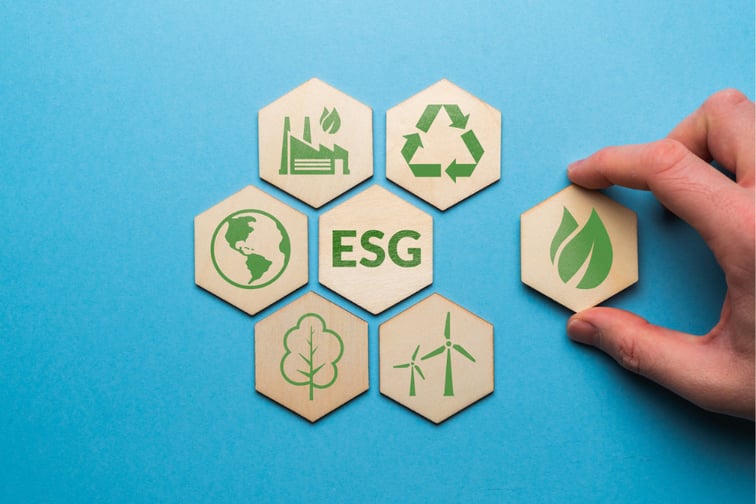

This article was provided by Craig Watson, head of Financial Risks at RSA
Environmental, Social and Governance (ESG) standards were introduced as a concept in 2006 by the United Nations to promote, encourage and demand positive investment practices and policies. Originally aimed at large investment funds and pension scheme managers, ESG is now high on the boardroom agenda across almost every conceivable industry. It has trickled down from corporate giants to the SMEs that are an integral part of global supply chains and therefore key stakeholders in the decarbonisation dialogue.
It pays to remember why companies adopt ESG policies in the first place – whether of their own volition, at the behest of regulators, investors, shareholders, customers, employees and other stakeholders, or in response to competitive pressure. Business leaders have a fiduciary duty to promote the success of their company, and countless studies show that companies that operate sustainably outperform those that don’t – especially during economic downturns like the one we are currently experiencing.
All this means leaders can no longer afford to regard their environmental and social responsibilities as a box-ticking exercise or nice-to-have: ESG has become key to businesses’ resilience and long-term survival.
When thinking about ESG risks in the context of D&O liability, the scrutiny has historically been on failures of governance, this was highlighted by the Smiths report and Higgs review and overlayed of course by the Companies Act 2006’. Of course, there is no successful ‘E’ or ‘S’ without functioning ‘G’. But today, environmental and social issues are key sources of emerging liability for directors and officers, with companies facing an ever-evolving slew of regulations and disclosure requirements.
It might seem logical that companies that are lagging on ESG initiatives would be a bad D&O risk, but in actuality, the inverse is true. It’s those companies that adopt a proactive posture on ESG that potentially face liability. Businesses that claim to have made significant sustainability efforts that turn out to be unsubstantiated, exaggerated or otherwise misleading should beware: the public is growing increasingly wary – and weary – of greenwashing.
The challenge is that ESG is quite elusive to define – comprised of three exposure classes with no universally-accepted specification – and therefore quite easy to contort to suit commercial or investment interests.
One high-profile example is vehicle manufacturers touting the low emissions and eco-friendly features of diesel vehicles, then later admitting to cheating emissions tests by fitting vehicles with a “defeat” device. But a more common scenario might be something as simple as a business publishing a statement on its website that it aims to reach net zero by 2030 – a laudable ambition, but could this effectively paint a target on the backs of directors and officers if the company falls short of that target?
While the environmental and governance pillars are currently grabbing boards’ attention, the social pillar is equally key to managing D&O risk in the context of corporate conscience and the era of DE&I (Diversity, Equity and Inclusion).
As a workforce strategy, ESG has become a differentiator when it comes to attracting and retaining talent, as employees are increasingly influenced by how a business responds to and tackles social issues when weighing up employers. In recent years, we’ve seen a litany of examples of how poor ESG performance can tank brands’ reputations and share prices through revelations of unethical working practices or cultures, from modern slavery to sexual harassment and various forms of discrimination. In the US, activist shareholders have brought cases regarding board diversity and positions on racial inequality and there’s truth in the old adage that “when America sneezes, Europe catches a cold”.
When it comes to ESG, there’s a lot of talk about “commitment” to improve, but the jury is still out on the impact of these promises. Where Corporate Social Responsibility (remember CSR, anyone?) could be aligned to and supportive of a company’s values, ESG focuses on material risks and opportunities in relation to the company’s operations and business model.
While the US is struggling to move away from fossil fuel dependency, the Securities and Exchange Commission last year proposed comprehensive rules for all registered companies requiring “consistent, clear, intelligible, comparable and accurate disclosure of climate-related financial risk”. So, the biggest challenge for businesses everywhere will be not in simply changing their policies and practices, but creating a coherent strategy with accurate data capture, meaningful KPIs, and robust governance processes to ensure the necessary follow-through.
We believe that it will only be a matter of time before we start to see ESG driving increased claims activity: younger generations in particular will not allow companies to continue investing in environmentally or socially damaging activities and will seek to hold them and their directors to account. It is almost inevitable that we’ll see the insurance industry playing a leading role in redefining ESG from “good business” to “table stakes”, resulting in increased due diligence from underwriters and a shift towards offering enhanced D&O terms and conditions to firms that proactively manage ESG risks.
At RSA, we have an appetite for progressive businesses with boards that are keen to evidence their understanding of the ESG risk landscape (including their supply chain and stakeholders) and the ways in which they have embedded ESG in the DNA, strategy and operations of the whole company. Brokers could be encouraging businesses to view ESG as central to their legal, corporate and financial risk assessment under the mantle of D&O liability, and frame this growing need for accountability not as an obstacle, but as a source of opportunities.
If you have a specific risk opportunity to discuss, contact our specialist underwriting team, or contact your usual RSA representative.
Alternatively for quick and efficient placement of business trade online with us via RSA Online.
